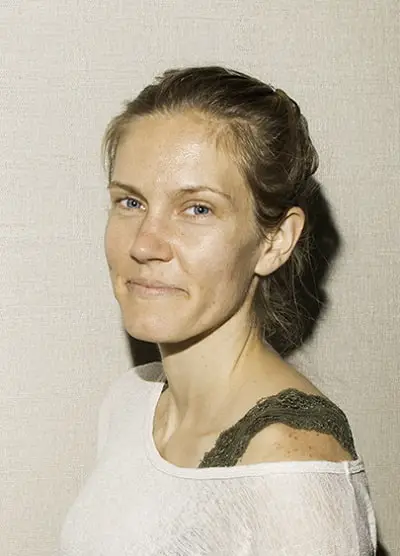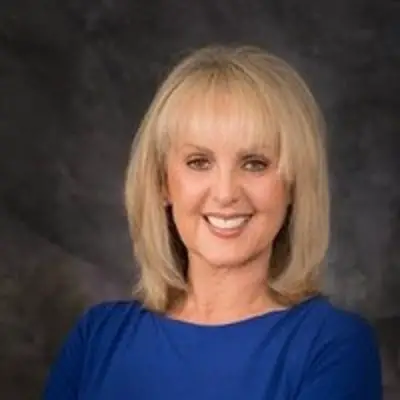Salary, Job Description, How To Become One, and Quiz
.jpg)
Clinical Psychologists
Clinical Psychologists diagnose or evaluate mental and emotional disorders of individuals through observation, interview, and psychological tests, and formulate and administer programs of treatment.
Table of contents
What they do
Clinical Psychologists diagnose or evaluate mental and emotional disorders of individuals through observation, interview, and psychological tests, and formulate and administer programs of treatment.
- Interact with clients to assist them in gaining insight, defining goals, and planning action to achieve effective personal, social, educational, or vocational development and adjustment.
- Identify psychological, emotional, or behavioral issues and diagnose disorders, using information obtained from interviews, tests, records, or reference materials.
- Use a variety of treatment methods, such as psychotherapy, hypnosis, behavior modification, stress reduction therapy, psychodrama, or play therapy.
- Counsel individuals and groups regarding problems, such as stress, substance abuse, or family situations, to modify behavior or to improve personal, social, or vocational adjustment.
Typical day
On a daily basis, Clinical Psychologists consult with or provide consultation to other doctors, therapists, or clinicians regarding patient care. They identify psychological, emotional, or behavioral issues and diagnose disorders, using information obtained from interviews, tests, records, or reference materials.
A typical day for a Clinical Psychologist will also include:
- Counsel individuals and groups regarding problems, such as stress, substance abuse, or family situations, to modify behavior or to improve personal, social, or vocational adjustment.
- Write reports on clients and maintain required paperwork.
- Discuss the treatment of problems with clients.
- Interact with clients to assist them in gaining insight, defining goals, and planning action to achieve effective personal, social, educational, or vocational development and adjustment.
- Use a variety of treatment methods, such as psychotherapy, hypnosis, behavior modification, stress reduction therapy, psychodrama, or play therapy.
Other responsibilities
Besides their typical day, Clinical Psychologists also consult reference material, such as textbooks, manuals, or journals, to identify symptoms, make diagnoses, or develop approaches to treatment. They may also maintain current knowledge of relevant research.
On a weekly to monthly basis, Clinical Psychologists refer clients to other specialists, institutions, or support services as necessary. They might also obtain and study medical, psychological, social, and family histories by interviewing individuals, couples, or families and by reviewing records.
In addition, they provide occupational, educational, or other information to individuals so that they can make educational or vocational plans.
Although specific duties may vary, many of them plan and develop accredited psychological service programs in psychiatric centers or hospitals, in collaboration with psychiatrists and other professional staff.
To some Clinical Psychologists, it is also their responsibility to develop and implement individual treatment plans, specifying a type, frequency, intensity, and duration of therapy.
What is the job like
Job satisfaction
Is this job meaningful
78% said they were satisfied with their job and 88% said they found their job meaningful.
I am a licensed psychologist, which means I have a PhD in clinical psychology. I am trained to diagnose adults struggling with any mental health struggles, but I specialize in the treatments I provide. I focus on couples therapy, sex therapy, and behavioral medicine. I love endurance athletics, so I structure my days to accommodate … Read More
I am a licensed clinical psychologist, presently practicing in a San Diego-based community health center. My typical day involves doing mental health screenings, administering psychological assessments, and providing psychotherapy to a wide diversity of mental health patients (whom I prefer to regard as mental health athletes. My day is never typical because I never know … Read More
My name is Supriya Blair, I’m a licensed clinical psychologist and founder of Dr. Blair Psychology, LLC in upstate New York. I provide mental health therapy, mindfulness training, and spiritual counsel to adults within my holistic telehealth practice. Being a clinical psychologist who is also her own boss is very fulfilling! I consider myself a … Read More
I feel like I have the best job in the world: I get to watch people heal and grow and attain their goals. I have a nice balance between a private practice in West Los Angeles and a luxury rehab facility in Malibu. I treat individuals and couples, mostly to overcome trauma and addictions. But … Read More
Dr. Louis Franzini is a licensed clinical psychologist in Florida and California. Pros Opportunities to pursue clinical and research topics of personal interest and of potential benefits to people with problems in living. Opportunity to teach and mentor students who can go on to be productive health care professionals. To receive a reasonable, but occasionally … Read More
Pros
Suitable for people who like to solve problems mentally.
Suitable for people who value relationships between co-workers and customers and want to work in a friendly non-competitive environment.
This career is perfect for people who love to work indoors.
Very good salary.
Cons
Not suitable for people who like to follow routines.
It is very hard to get into this career. Extensive skills, knowledge, and experience are required for this career.
Long working hours (More than 40 hours per week).
How much do they make
Average salary
Average hourly wage
Entry-level Clinical Psychologists with little to no experience can expect to make anywhere between $46,410 to $60,750 per year or $22 to $29 per hour.
| Salary by experience | Annual | Hourly |
|---|---|---|
| Highest (Top 10%) | $138,550 | $67 |
| Senior (Top 25%) | $104,860 | $50 |
| Median | $79,820 | $38 |
| Junior (Bottom 25%) | $60,750 | $29 |
| No experience (Bottom 10%) | $46,410 | $22 |
This table shows the top 10 highest paying industries for Clinical Psychologists based on their average annual salary.
| Salary by industry | Annual | Hourly |
|---|---|---|
| Outpatient Care Centers | $109100 | $52.45 |
| Child Day Care Services | $105670 | $50.80 |
| Home Health Care Services | $103520 | $49.77 |
| Offices of Other Health Practitioners | $101860 | $48.97 |
| Junior Colleges | $100470 | $48.31 |
| Offices of Physicians | $99590 | $47.88 |
| General Medical and Surgical Hospitals | $96930 | $46.60 |
| Management of Companies and Enterprises | $96860 | $46.57 |
| Local Government | $94790 | $45.57 |
| Scientific Research and Development Services | $93640 | $45.02 |
View more salary by industries here.
Where can they work
Where can Clinical Psychologists work? Here is a table showing the top 10 largest employers of Clinical Psychologists including the average salary in that industry.
| Employers | Total Employed | Annual Salary | Hourly Wages |
|---|---|---|---|
| Elementary and Secondary Schools | 44970 | $80960 | $38.93 |
| Offices of Other Health Practitioners | 20060 | $101860 | $48.97 |
| Offices of Physicians | 6400 | $99590 | $47.88 |
| Individual and Family Services | 6070 | $84000 | $40.39 |
| Outpatient Care Centers | 5430 | $109100 | $52.45 |
| General Medical and Surgical Hospitals | 4540 | $96930 | $46.60 |
| State Government | 3990 | $90290 | $43.41 |
| Colleges, Universities, and Professional Schools | 3970 | $75750 | $36.42 |
| Psychiatric and Substance Abuse Hospitals | 3950 | $90130 | $43.33 |
| Local Government | 3640 | $94790 | $45.57 |
What is the work day like
Working hours
Working schedule
How often do you use email in this job?
Telephone
How often do you have telephone conversations in this job?
Group discussions
How often do you have group discussions in this job?
Public speaking
How often does this job require you to do public speaking?
Level of competition
How much competitive pressure is in this job?
What is the work environment like
Office-style environment
Indoors in an environmentally controlled condition
Warehouse-style environment
Indoors in a non-controlled environmental condition such as a warehouse
Outdoors
Outdoors exposed to all weather conditions
Outdoors – Under Cover
Outdoors but under cover (e.g. structure with roof but no walls)
How to become one
Difficulty to become one
Required level of education
What level of education do you need to perform the job?
Relevant majors
Psychoanalysis and Psychotherapy
Applied Behavior Analysis
Family Psychology
Health/Medical Psychology
Geropsychology
Clinical Child Psychology
Counseling Psychology
Clinical Psychology
Developmental and Child Psychology
Psychology
Relevant work experience
How much related work experience do you need to get hired for the job?
On The Job Training
How much on the job training do you need to perform the job?
Should you become one
Best personality type for this career
People with this personality likes to work with ideas that require an extensive amount of thinking. They prefer work that requires them to solve problems mentally.
People with The Builder personality type likes practical and hands-on work. They prefer working with plants, animals, and real-world materials like wood, tools, and machinery.
People with The Thinker personality likes to work with ideas that require an extensive amount of thinking. They prefer work that requires them to solve problems mentally.
People with The Artist personality likes to work with designs and patterns. They prefer activities that require self-expression and prefer work that can be done without following a clear set of rules.
People with The Helper personality type likes to work with people and in teams. They prefer work that allows them to build relationships with others.
People with The Leader personality likes to start and work on projects. They also like leading people and making many decisions.
People with The Organizer personality type likes to follow set procedures and routines. They prefer working with data and details more than with ideas.
You can read more about these career personality types here.
People who are suitable for this job tend to like working with ideas and require an extensive amount of thinking. They like searching for facts and figuring out problems mentally.
They also like working with, communicating with, and teaching people. They like helping or providing service to others.
Take this quiz to see if this is the right career for you.
Work Values
Which values are the most important to a person’s satisfaction for this job?
You are someone who is results oriented. You prefer work that allows you to utilize your skills and abilities while at the same time giving you a sense of accomplishment.
You are someone who values job security, steady employment, and good working conditions. You also prefer work that keeps you busy all the time with something different to do every day.
You are someone who values job advancement and leadership roles. You prefer work that receives recognition for the work you do and jobs that are looked up to by others in the company and your community.
You are someone who likes to provide a service to others. You prefer a work environment where you can work with your co-workers in a friendly non-competitive environment.
You are someone who values a company that stands behind their employees. You prefer a work environment where everyone is treated fairly and is being supported by the company.
You are someone who likes to work on your own and make your own decisions. You prefer work that requires little supervision and are allowed to try out your own ideas.
Don’t know which career to pursue?
Take the career quiz to find careers that match your personality type.
Take The Career Quiz





.jpg)




.jpg)
.jpg)
.jpg)
.jpg)
.jpg)
.jpg)
.jpg)
.jpg)
